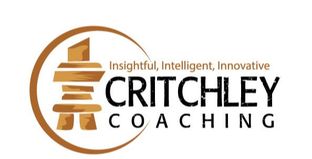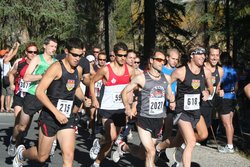
Thinking about this got me thinking about how we respond to things in our own lives, and specifically whether we respond at all, or whether we simply react. As I was doing my thinking about this blog I got a humorous image in my mind about what it could be like if the real first responders showed up and acted like ‘first reactors’ instead! First they could freak out; second they could begin to lay blame! In a movie, this could be funny; in real life it would be less so.
What then, is the difference between responding and reacting? These words are sometimes interchanged, but I maintain that there is a subtle but very clear distinction between the two. The idea of reacting brings to mind a quick, often not fully thought through reaction to some event. We hear people say things like, ‘She did not react well to that news!’ or ‘Did you see his reaction; it was hilarious!’. When we are reacting to life, it is as if we meet one surprise after another and how we deal with the surprises is often a surprise to others!
When we respond to things however, there is a sense of some pre-thought. Long before we are ever in a situation, we have given thought to how we will act.
Reading this, you could quickly jump to the incorrect conclusion that we are reacting when we are surprised or startled, and responding when we have a lot of time to think. This is not true. In the case of the first responders, very often they are put in the most surprising or rapidly changing situations imaginable. And yet we do not expect these people to have a spontaneous, surprising response each time. We do expect them to have a considered, well practiced and rehearsed response. We expect consistency. We should know that if we call an ambulance to an event in any corner of the city, or country for that matter, we should receive a very similar response. This similar response can be counted on whether the paramedics are responding to a traffic incident, a heart attack or a broken bone. This consistency gives us a sense of comfort, of knowing that we are in good hands and of feeling like there is no guess work happening.
These are great ingredients of good responses in our own lives too. Even though we cannot begin to imagine the different scenarios we will face on a daily basis (just like paramedics cannot know), we certainly can decide well in advance what kind of response we want to give. You may wonder how this could be possible. How could we possibly plan our response to something we don’t know will happen? The way we plan our response is to start to think ahead a bit, to think about how it is that we want people to see us. If the truth were being spoken, this means that we need to think about how we want to ‘be’ in our life.
Let’s look at an easy example. If you are a parent, you know that in the space of a heartbeat, children can throw you off guard with their actions or words. If your child (replace child with colleague, boss, employee etc. if that fits better) happens to tell you something that surprises you in a negative way, you really have two possible choices of action. You might choose to simply react. This very rarely allows you to give your best reply, and often the result of your reaction causes some unintended consequences. At worst, your reaction may be so bad that your child realizes that telling you things is a very bad idea. At best, you end up apologizing and trying to re-start what could have been an important conversation.
Your second choice in this example is to give the response you had planned. You may never have even suspected the details of what the child reveals, but what you would have decided ahead of time was that you would always respond to your child in a thoughtful, open, non-judgmental way. Once you have done this, and let the child’s news sink in, you can return to the conversation later to give your insights with little or no damage done. The bonus is that the child will have learned that you are safe to approach.
We all have people in our lives who are reactors. No matter how badly things go off the rails for them, they continue to use the one tool that they have really mastered – reacting. They seem to have no sense of how their reactions affect others. We also have all met people who never seem to be flustered. They handle the most difficult circumstances with a kind of grace and calming response. These people have taken the time to think about themselves, their lives, and who they want to be. They understand the effect that their chosen response has on others.
This week I have posted two new videos on my website, created by my daughter-in-law, Cara about my coaching practice (www.ccsocial.ca). In one, to describe coaching, I say, “Coaching allows people to become very conscious about how they want to spend their precious time on earth.” This includes being conscious about how we choose to respond to others in our lives.
My inquiry for you this week is, “How am I responding?”
Please take a minute to check out my videos here!
I provide coaching, group coaching, workshop creation and facilitation. Contact me for all your or your organization’s coaching needs.





 RSS Feed
RSS Feed